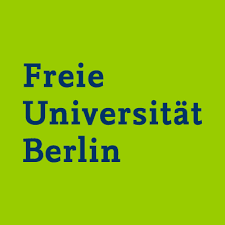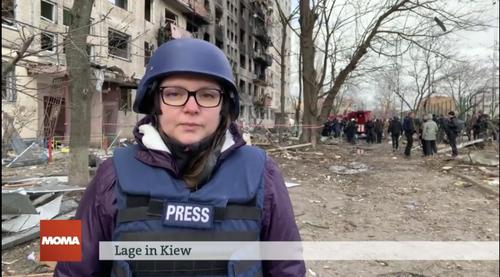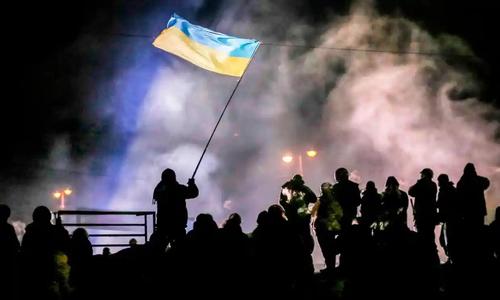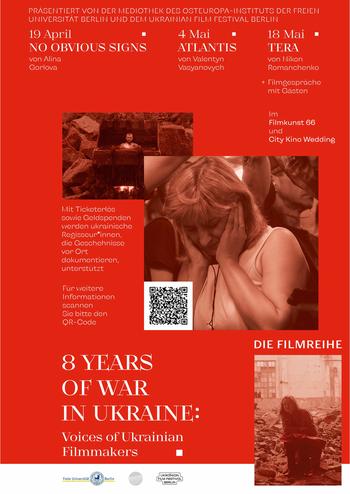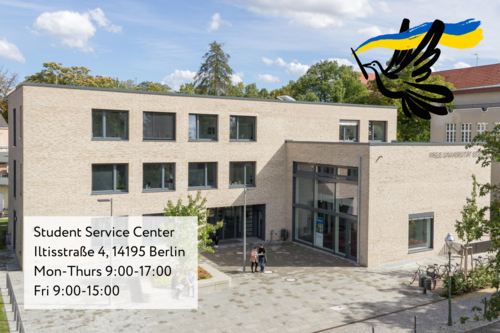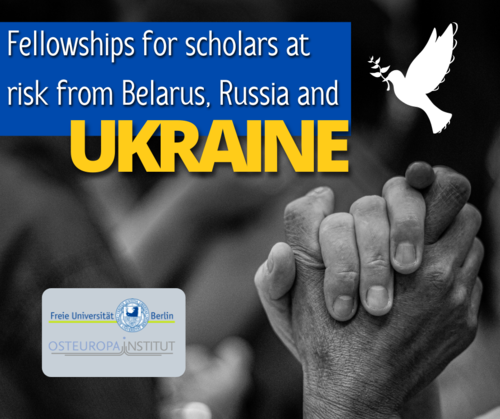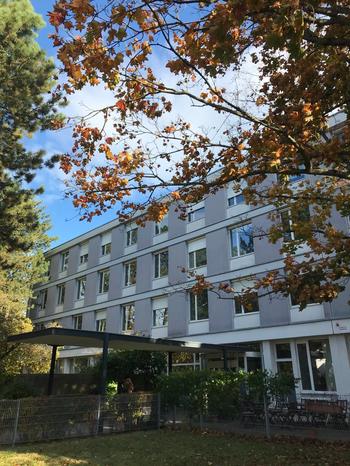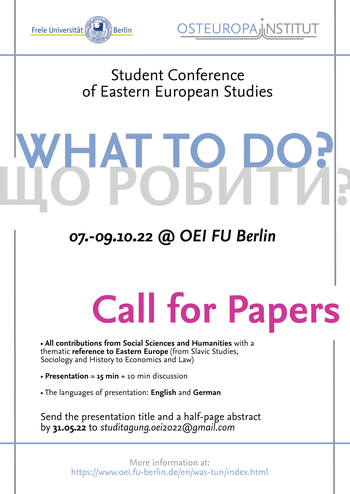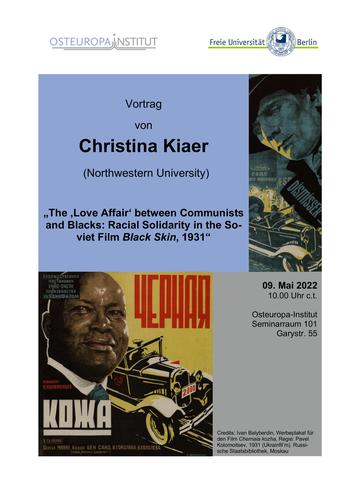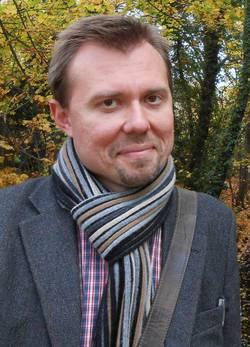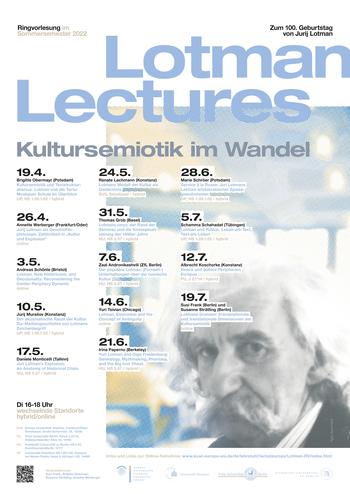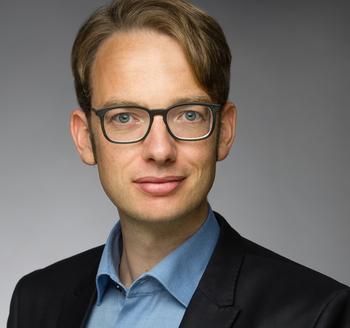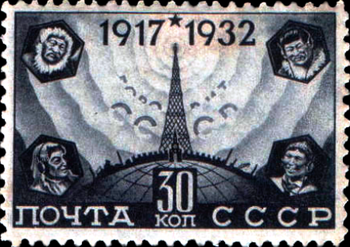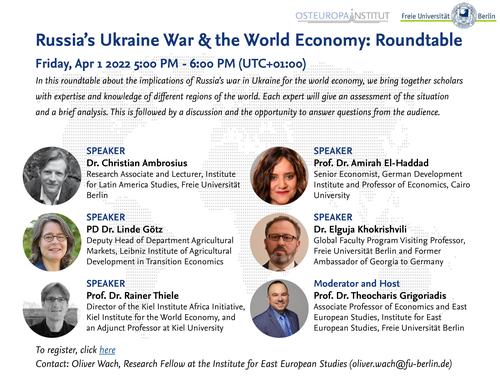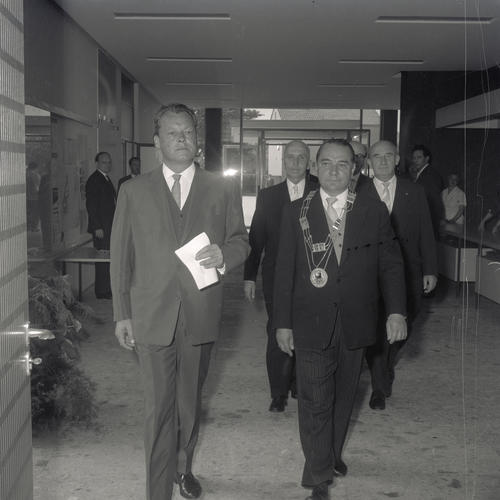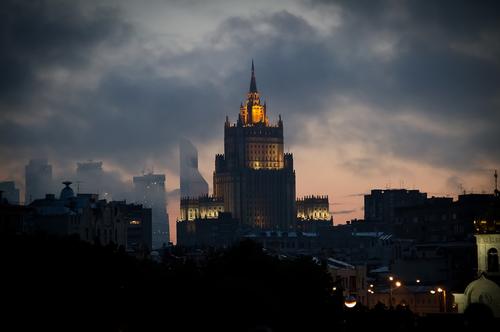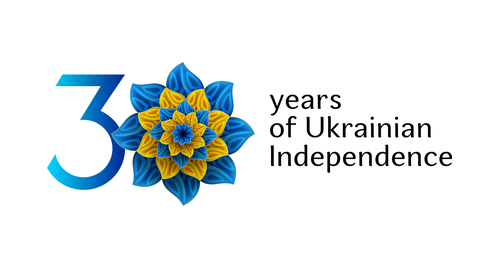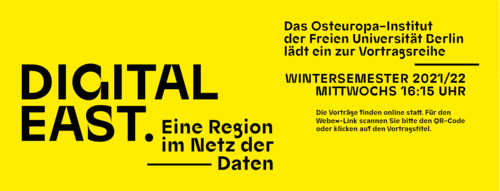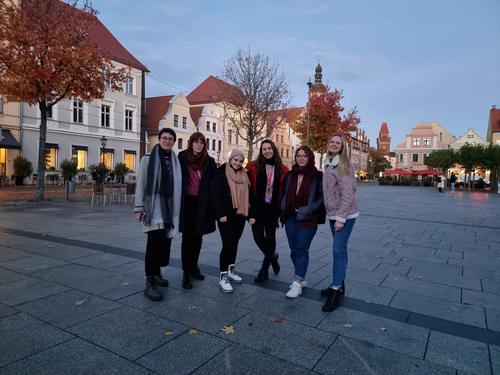OEI Aktuell 2022 | 1
Apr 04, 2022
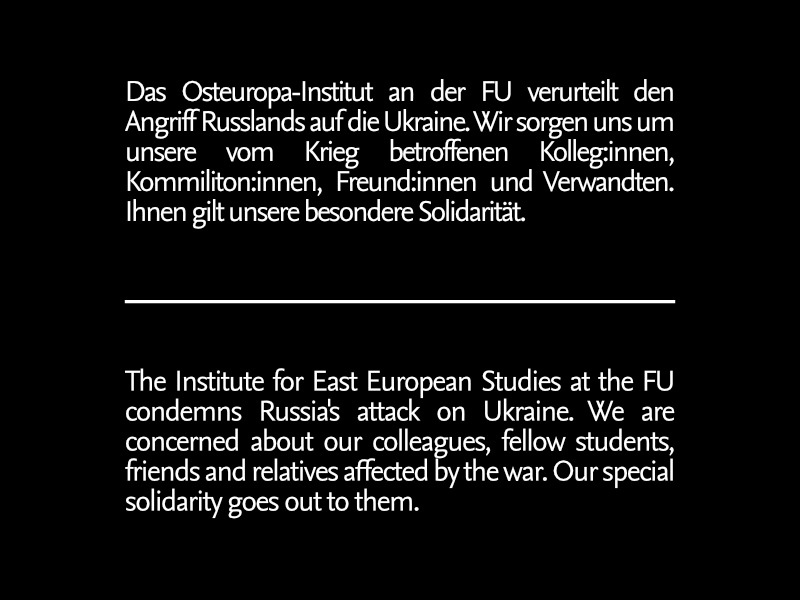
War in Ukraine - Statement by the Institute for East European Studies of Freie Universität Berlin
Also available in German, Ukrainian, and Russian
________________________________________________________________________
Dear Friends of the Institute for East
European Studies of Freie Universität Berlin,
in these difficult times, there is only one issue on everyone's mind: Russia's aggressive, full-scale war against Ukraine.
Considering the massive public demand for information on Eastern Europe, especially on Ukraine and Russia, we are increasingly engaged in media work, organize events (see below the film series "8 Years of War in Ukraine") and courses, offer school class talks to bring the Institute's expertise on Russia and Ukraine into the public and political discourse and have announced bridging fellowships for endangered scholars* from Ukraine, Belarus, and Russia.
Because of all the terrible events, we have decided to include up-to-date information about the response of the Institute for East European Studies and Freie Universität in general to Russia's war against Ukraine and funding opportunities for refugee students and scholars as well as information about our initiatives.
We have also chosen to translate this issue of the newsletter into English in the hope that it might be useful for non-German speakers as well. Please feel free to forward it to your friends and acquaintances.
Here you can subscribe to our newsletter.
________________________________________________________________________
RUSSIAN WAR AGAINST UKRAINE
Freie Universität responds to Russian attack on Ukraine
“Freie Universität Berlin strongly condemns the Russian government’s war of aggression on Ukraine. We stand with the Ukrainian people. Freie Universität Berlin does not and will never discriminate against people based on their heritage or where they come from. We firmly oppose any defamation or attacks against Russian and Belarusian members of our university”.
Freie Universität suspends scientific relations with Russian research institutions
Freie Universität Berlin has decided to suspend relations with scientific and academic institutions in Russia in response to the Russian attack on Ukraine. This includes student exchange programs as well as its strategic partnership with St. Petersburg University. Freie Universität’s Liaison Office in Moscow will also close for the time being.
Engagement of our Students. Anastasia Magazova's reports from Ukraine
Many of our students are involved in volunteer initiatives and help Ukrainian refugees arriving in Berlin. We express our gratitude for the work they are doing!
However, we would like to pay special tribute to the courageous work of our student Anastasia Magazova, who is currently in Ukraine writing about the war for the German media taz in German and Russian. In addition, Anastasia posts updates and insights about the war on her Twitter profile. We thank Anastasia for her courage and her work and are very proud of her!
Film selection "Ukraine" of the OEI Media Library
As part of the Ukraine selection, our Media Library collects documentaries and feature films that have been released in the wake of the Russian war of aggression by Ukrainian and other Central and Eastern European filmmakers, international film festivals, and film institutions via free online streaming.
The Film Series "8 Years of War in Ukraine: Voices of Ukrainian Filmmakers" (April/May 2022)
This film series is organized in cooperation between the Mediothek of the Institute for East European Studies of Freie Universität Berlin and the Ukrainian Film Festival Berlin (UFFB). The series brings together three films by Ukrainian filmmakers that mark contemporary Ukrainian cinema in the context of the war with Russia, which has been going on for the last eight years.
With this film series, we would like to directly support the filmmakers in Ukraine. The ticket proceeds will be donated to our colleagues at the Docudays UA film festival.
International Desk in the Student Service Center
International students seeking advice who have general questions about studying at FU Berlin, application, admission, etc., can contact this desk, which is expected to be staffed until the end of October, during SSC opening hours (Mon-Thurs 9:00-17:00 and Fri 9:00-15:00). There are Ukrainian FUB students assigned there who can provide information in Ukrainian, Russian, German and English.
Bridging fellowships of the Institute for East European Studies
The OEI provided bridging fellowships to endangered scientists from Ukraine, Belarus, and Russia. The fellowships were in great demand and are now all taken. We will introduce our scholars in the next newsletter. Dr. Olga Ryabchenko from Ukraine is already working at OEI under the scholarship.
More Ukraine updates on Twitter
The war is developing quickly and unpredictably, but we try to stay informed ourselves and keep you updated. On our Twitter, we share with you information about themed events and interviews with our staff.
NEWS
Institute | New application period: April 15 - August 15, 2022
From April 15, we again accept applications for studies at OEI starting WiSum22/23. The application deadline is August 15, 2022.
We are especially looking forward to applications from Ukrainian citizens*. Applications from Russian and Belarusian students are also still possible.
Institute | "What to do?" – Student Conference of Eastern European Studies
The conference is scheduled for October 7-9, 2022. All contributions from the humanities and social sciences with thematic relevance to Eastern Europe are welcome, including final papers or term papers. The OEI invites all interested parties to apply by 31.05.2022 at studitagung.oei2022@gmail.com with a paper title and a half-page abstract.
Institute | Christina Kiaer: „The ‚Love Affair‘ between Communists and Blacks“
On May 09 at 10 a.m., OEI will host a lecture by Christina Kiaer (Northwestern University) on "The 'Love Affair' between Communists and Blacks: Racial Solidarity in the Soviet Film Black Skin, 1931."
Richard Löwenthal Lecture | 22.06. 4pm: Andrii Portnov
The Richard Löwenthal Lecture is a public lecture series of the OEI, which invites well-known researchers on Eastern Europe and the post-Soviet space to the Institute for East European Studies once a year. The next Lecture will be given by Prof. Dr. Andrii Portnov on June 22, 2022, at 16:00.
Andrii Portnov is a historian of modern Ukraine. He is the Professor for Entangled History of Ukraine at Europa-Universität Viadrina, Frankfurt/Oder. Andrii Portnov specializes in intellectual history, historiography, genocide and memory studies in Eastern and Central Europe.
Institute | Lecture Series in SoSe 2022: "Lotman Lectures"
In February of this year, the world celebrated the 100th birthday of Yuri Mikhailovich Lotman, the Soviet and Russian literary scholar, cultural scientist and semiotician. On the occasion of this anniversary, the Institute for Eastern European Studies has prepared a lecture series, which will be held in the 2022 summer semester under the name "Lotman Lectures. Cultural Semiotics in Transition." The schedule and details of the sessions can be found here.
History | Robert Kindler also in summer term 2022 at the OEI
Prof. Dr. Robert Kindler will continue to head the History Department and represent the Chair of the History of East Central Europe at the OEI in the summer semester of 2022. Thus, Mr. Kindler is also authorized to conduct examinations in the summer semester.
History | Berlin Colloquium on the History of Eastern Europe
In the summer semester of 2022, the History Department of the OEI in cooperation with the Chair of History of Eastern Europe at the Humboldt University of Berlin will host the "Berlin Colloquium on the History of Eastern Europe". The presentation of current research projects takes place weekly online on Wednesdays at 6 pm.
The complete program and the dial-in data can be found here.
COURSES SumSe 2022
Institute
-
“Digital East”: Auswirkungen digitaler Kulturen
Our project seminar also deals with the conflict of interests between the state and civil society with regard to digitalization and the resulting dangers and opportunities. After an interdisciplinary, theoretical, and conceptual introduction to the topic, the course focuses on supervised project work in small groups. Scientific, journalistic, and artistic projects are realized, which can be thematically located in all areas of the institute.
History
-
Before Nord Stream 2 and All That: German-Russian/Soviet Economic Relations in the Long 20th Century
This course reconstructs the long history of German-Russian/Soviet economic relations between ~ the 1900 and the post-Soviet era. Its first part will be devoted to theoretical and methodological basics regarding the political economy of international relations, actors and structural features. In the second part, students will conduct small group projects to reconstruct German-Russian/Soviet economic relations in chronological order. The seminar will be jointly organized by Martin Lutz (HU) and Robert Kindler (FU). -
Soviet History through the Senses
In 1994 George H. Roeder Jr. published an article in the Journal of American History titled ‚Coming to Our Senses‘ and claimed: „Ours is a nearly sense-less profession.“ (JAH 81, 3; p. 1112.). Only a few historians have studied sensory experiences up to this point; most notably Alain Corbin. We will delve into the main themes of the historiography of the Soviet Union and explore their still largely uncharted sensory dimension. Although we will work mainly with texts and audio-visual material, we will also strive for a practical approach, for example, by studying Soviet cookbooks. -
Das Russländische Imperium und die Sowjetunion in westlichen Reiseberichten
Until well into the second half of the 20th century, travelogues from Russia and the Soviet Union served historical researchers at best as a "reservoir of quotations" and were considered useful historical sources only to a limited extent. Together, we will devote this seminar to a selection of well-known and lesser-known (Western) European and American travelogues from the beginning of the 19th to the end of the 20th century.
Culture
- Andersdenken/Umdenken. Protest und Dissidenz in osteuropäischen Kulturen
The seminar examines artistic forms of resistance, alterity, and protest in literature, photography, film, and performance in Eastern European cultures from ca. 1900 to the present. Attention will focus on the following questions: What are forms of articulation, rhetorics, and narratives of the counterculture? How are spaces and (off)times of protest shaped? Which aesthetics of resistance or subversion can be observed?
-
Die Erfindung einer Region. Zentralasien in der sowjetischen Kultur
The seminar is dedicated to the cultural imaginary and considers the 'invention' of Soviet Central Asia between the October Revolution and the end of the empire. The focus is on the one hand on the specific processes of the invention of revolution, nation, history, and city in the early Soviet and Stalinist periods, and on the other hand on the growing unease in the multinational empire that manifested itself since the Thaw and was linked to the critique of cultural experiences of alienation, ecological crises, and growing ethnic tensions. -
Der rote Globus. Osteuropäische Reiseliteratur im Kalten Krieg
The seminar aims to develop a systematic insight into the history and theory of the genre of travel literature and to reconstruct the specific genesis of the genre in the context of the Cold War, globalization and decolonization using the example of Eastern European accounts. The seminar is offered in cooperation with Dr. Matthias Schwartz from the Leibniz Center for Literary and Cultural Research (ZfL) in Berlin. -
Erinnern, Wiederholen, Durcharbeiten – Migrationserzählungen aus Mittel- und Osteuropa
The seminar builds on an intensive text-analytical work from a Slavic perspective and focuses especially on the following works and authors, who impressively demonstrate different forms of movement through spaces, cultures, time or even language to the readership: Olga Gryaznova's "The Russian is one who loves birches" (2012), Katya Petrovskaya's "Maybe Esther" (2014), and Sasha Marianna Salzmann's "Out of herself" (2017).
Politics
- Development Assistance Policy of Eastern European Countries and Russia
The goal of the course is to give an analysis of the development assistance priorities of Russia and Eastern European countries. The course will be focused on the evolution of the concept of development cooperation and its role in promoting the economic and political interests of a state. More info can be found in the description of the seminar. -
Quantitative Methods in Autocracy Research
The class aims to combine a brief introduction into the quantitative research in modern social sciences with the discussion of specific problems quantitative political science faces while studying authoritarian regimes. It builds upon the previous knowledge of quantitative methods (especially regression analysis) and focuses on the topics of causal identification. The class will be accompanied by the discussion of practical examples of studying authoritarian regimes using quantitative methods. -
Deutsche Außenpolitik zu Ost- und Südosteuropa: Herausforderungen der Politikberatung
The course is intended to provide insight into policy advice on numerous political and social challenges facing both the countries of Eastern and Southeastern Europe and German and EU policy towards these states. It will be organized in cooperation with LMU Munich; it is planned to hold the event as a block in the first week after the end of the semester and as a series of visits to relevant institutions; pandemic-related changes are of course reserved. -
Kleptocracy, Rents, and Development in Eurasia
The seminar explores this variety of rent-seeking and development in Eurasian societies, which offer a rich empirical ground to ask about the different sources of rents, the ways in which they are controlled and distributed by various actors, and the conditions under which rent-driven development processes succeed, falter or fail. To this end, we will first explore conceptual approaches to the relationship between kleptocracy, rent and development. We will then look at processes of rent management, rent channelling, and rent circulation, using different country cases, levels and sectors, to find out how various state and non-state actors seek to navigate, alter or block Eurasia’s political economies.
Sociology
- Russische Eliten
This seminar combines sociological and political science approaches to elite and authoritarianism research in order to broaden the view and to identify structural connections. The focus is on the recruitment, composition and lines of conflict in the political elite, the relationship between economic elites and the state, and between the state and the Russian Orthodox Church. In addition, the increasing closure in the wake of the conflict with the West and the question of counter-elites are discussed.
-
Gender, Nation and Welfare States in Eastern Europe
The focus of this seminar is more on Central and Eastern Europe, Ukraine and Russia. We combine theoretical conceptualizations with empirical findings on the interaction of gender regimes, nation-building and social policy. We will discuss why "gender" has become an important issue for the rise of right-wing populism or illiberal conservatism. -
Social Structures of Post-Communism
This seminar helps students develop scientific arguments and terms papers via an offer of motivating and thought-provoking topics that reveal the rich societal diversity of a multi-faceted Eastern Europe. The seminar’s empirical focus is on the social structures of post-communist societies. Throughout the seminar students work on various individual and team assignments, helping them develop the analytical skills needed in social scientific scholars. -
Civil Society and Social Movements
The seminar combines theoretical texts on civil society and social movements with important examples of collective action in post-communist Europe. Cases to be discussed in class include the NGO sector and the international “democratization industry”, the role of intellectual dissidents, Solidarnosc in Poland, cultural movements – both conservative (in Poland) and anarchist (Voina, in Russia), far-right movements in Russia and Poland, Otpor in Serbia and its global model for peaceful revolutions, Ukraine’s Euromaidan and its aftermath. -
Social Problems and Social Policies: Experiences from Post-Communist Countries
Following decades of neoliberal offensive against the welfare state, post-communist countries have found themselves with a set of most often externally-defined “social problems”, to be tackled with communist-era institutions. Discrimination, gender and family policies, poverty, drug addiction, crime, disability, and many others: These cases of hotly debated "social problems" and the means used to address them in post-communist Europe inform and structure our seminar, along with theoretical texts in the sociology of social problems and deviance. -
Researching Identities
This seminar discusses strategies for researching identities through qualitative (ethnographic) methods with a special focus on radicalized, as well as repressed or stigmatized identities. We will also detail the use(fulness) of “identity” and explore whether and how identities can explain phenomena as varied as extremism, social action, deviance etc. -
Migration and Transformation
This seminar links the analysis of migration phenomena to post-socialist theory and, through this, to the analysis of social change. It offers a broad overview of migration and migration policy in Eastern Europe and discusses these phenomena in the context of the post-socialist transformation. We will examine which social aspects of transformation influence migration processes and how migration itself influences social change.
Volkswirtschaft
- Economics of Post-Soviet Education
This seminar provides a comprehensive overview of the empirical economic analysis of investment in and provision of education in post-Soviet countries. The transformation process and characteristics of the education system in these countries will be examined. The seminar will also analyze the production and provision of education.
-
The political economy of (un)sustainable development in Central Asia
The course is jointly conducted by political economist Kuat Akizhanov (Nur-Sultan) and political scientist Sebastian Schiek (Berlin) and takes place in English partly online, partly offline. The course aims to build an understanding of evolution and transformations that has taken place in the five post-Soviet Central Asian countries, namely, Kazakhstan, Kyrgyzstan, Tajikistan, Turkmenistan and Uzbekistan. This course applies the interdisciplinary approach to analyse the socio-economic and political processes in the region. The course is designed to provide students with a solid introduction to key actors in the Central Asian states and approaches that will serve as the analytical basis and a tool for policymaking. -
Quantitative Methoden mit STATA
This seminar is intended for students who have little or no knowledge of econometrics or of using the statistical program STATA. It includes a step-by-step introduction to data analysis with STATA, as basic knowledge of regression methods and a confident use of STATA are important prerequisites for successful participation in advanced master courses. Participants will learn basic models and methods for analyzing microeconometric data and will be able to perform such analyses using a program such as STATA.
PUBLICATIONS
History
- Kindler, R. (2022): Robbenreich. Russland und die Grenzen der Macht am Nordpazifik, Hamburg: Hamburger Edition.
Politics
- Libman, A. (2021) Historical Legacies of Communism: Modern Politics, Society, and Economic Development. Cambridge: Cambridge University Press (mit Anastassia Obydenkova).
Culture
-
Strätling, S. (2021): The Hand at Work: The Poetics of Poiesis in the Russian Avant-Garde. Translated by Alexandra Berlina. Academic Studies Press. Boston, 348 S.
-
Günther, C. (2021): Putting the Empire to Music. The Phenomenon of Vocal-Instrumental Ensembles (VIA). APPARATUS No. 13 (2021). DOI: https://doi.org/10.17892/app.2021.00013
Sociology
- Bluhm, K. (2021) Sozialer Konservatismus und autoritäre Staatsvision in Russland. In: Religion & Gesellschaft in Ost und West (RGOW), 49 (10), 13-15.
-
Varga, M. & Buzogány, A. (2021) The Foreign Policy of Populists in Power: Contesting Liberalism in Poland and Hungary, Geopolitics, 26:5, 1442-1463, DOI: 10.1080/14650045.2020.1734564
-
Varga, M., & Buzogány, A. (2021). The Two Faces of the ‘Global Right’: Revolutionary Conservatives and National-Conservatives. Critical Sociology. https://doi.org/10.1177/08969205211057020
Economics
-
Zhu, Junbing & Theocharis Grigoriadis. “Chinese Dialects, Culture & Economic Performance”, China Economic Review, forthcoming.
-
Grigoriadis, Theocharis. “Religion & Democracy”, in Zimmermann Klaus F. 2022. Handbook of Labor, Human Resources and Population Economics. Berlin and New York: Springer, forthcoming.
-
Grigoriadis, Theocharis. Review of “A Full Value Ruble. The Promise of Prosperity in the Postwar Soviet Union”, by Kristy Ironside, Harvard University Press, 2021, H-Soz-Kult, forthcoming.
NEW FACES AT THE INSTITUTE
History
-
Scholar at risk: Dr. Olga Ryabchenko
Dr. Olga Ryabchenko is the head of the Institute of Historical and Cultural Studies of O.M. Beketov University of Urban Economy in Kharkiv. She is also a member of the Institute of the History of Ukraine of the National Academy of Sciences of Ukraine. She conducts research on the history of everyday life and the relationship between society and the ruling apparatus in Soviet Ukraine during the Stalinist era. Her stay at the OEI is part of a bridging fellowship for refugee scholars from Ukraine.
Sociology
- Volodymyr Ishchenko
Volodymyr Ishchenko is a research associate at the Institute of East European Studies, Freie Universität Berlin. He defended a doctoral thesis in sociology at Taras Shevchenko National University of Kyiv (Ukraine). In Ukraine, he lectured at Kyiv-Mohyla Academy and Kyiv Polytechnic Institute as well as initiated and supervised Ukrainian Protest and Coercion Data project. His research focused on protests and social movements, revolutions, radicalization, right and left politics, nationalism, civil society. He is currently working on a collective monograph The Maidan Uprising: Mobilization, Radicalization, and Revolution in Ukraine, 2013-14 and is a member of Deradicalization in Europe and Beyond: Detect, Resolve, Reintegrate (D.Rad) project team (supported within Horizon-2020 program).
Economics
-
Margarita Maximova
The Department of Economics welcomes Margarita Maximova to its team starting in the summer semester of 2022. Margarita Maximova starts as a research assistant and simultaneously begins her PhD. She earned her bachelor's degree in economics at the Higher School of Economics (HSE) in Moscow and completed a double degree master's program at the University of Paris I, Paris School of Economics and HSE. She worked as a research assistant in the Higher Education Development Laboratory at HSE and taught courses in econometrics at HSE. Her main research interests are economics of education and labor economics in Russia. Her dissertation examines inequality in higher education and the transition from college to work in Russia.
REVIEW OF THE WINTER SEMESTER 2021/22
Russia’s War in Ukraine and the World Economy: Roundtable
This roundtable discussed the impact of Russia's war in Ukraine on the global economy. Scholars with expertise and knowledge of different regions of the world were brought together to discuss together. Participants presented their assessment of the situation and a brief analysis of their respective areas of expertise in short statements. This was followed by a discussion and questions from the audience were answered. The aim of the roundtable was to create bridges of communication and discussion in German and European society and to discuss the impact of the war on regions that have not received enough attention so far. The roundtable was organized by research assistant Oliver Wach and Professor Theocharis Grigoriadis.
Anniversary exhibition "70 years OEI" on the FU campus
Last year, the Osteuropa-Institut celebrated the seventieth anniversary of its founding in 1951. For the first time, the anniversary exhibition "70 Years of the OEI" dealt with a wide-ranging review of the history of the Osteuropa-Institut, reflecting Berlin's and Germany's eventful relations with its eastern neighbors. Highlights were cast on the Institute's confrontation with National Socialism as well as on its development at the time of the student protests and the years of system collapse and system transformation since the 1990s. The exhibition was designed as a joint project of the work areas, the students and the secretaries of the OEI. After a festive event for the opening of the exhibition on 01.11.2021, the exhibition banners were on display in the winter semester 2021/22 in the Henry Ford Building and in the Silberlaube of the FU. Since the beginning of February, selected parts of the exhibition have been presented in the institute foyer at Garystraße 55 during the regular opening hours of the OEI (Mon-Fri from 8am-8pm).
International Symposium “From Berlin Wall to New Conflict: Eastern European Cleavages and Encounters”
Außenministerium der Russischen Föderation
Image Credit: NikolayFrolochkin / 84 images
The international symposium was a central event of the anniversary celebrations and at the same time a platform for discussing the cultural, political, economic and social complexity of Eastern Europe over the past thirty years.
Three panels of the symposium focus on the consolidation of authoritarian regimes in Eastern Europe, state capitalism and its role in economic and social development, and civil culture, protests, and dissidence in Eastern European countries.
Symposium on the occasion of the retirement of Prof. Dr. Gertrud Pickhan
On November 26, 2021, Prof. Dr. Gertrud Pickhan was given a ceremonial farewell by the FU with a festive symposium. The festive symposium honored Gertrud Pickhan's work and her many years of teaching, which shaped a generation of historians of Eastern Europe. Ms. Pickhan retains her examination privileges in retirement.
Days of Ukraine in Berlin and Brandenburg
The „Days of Ukraine in Berlin and Brandenburg“ took place on September 16 and 17, 2021, on the occasion of the 30th anniversary of Ukraine's independence and the 70th anniversary of the Institute for Eastern European Studies at Freie Universität Berlin, and was organized by FU Berlin under the chairmanship of Prof. Theocharis Grigoriadis, Institute for Eastern European Studies at Freie Universität Berlin, in cooperation with the German-Ukrainian Academic Society. For the first time, this academic networking conference provided an excellent exchange platform for German-Ukrainian cooperation in higher education, science and research in Berlin, Brandenburg and beyond. More than a hundred guests from Germany, Ukraine and other countries attended the event. Speakers at the conference included scientists from Freie Universität Berlin, the University of Potsdam, Humboldt-Universität zu Berlin, the National Mechnikov Institute Odessa, the National Taras Shevchenko University, the National Academy of Sciences of Ukraine, the Center for Eastern European and International Studies (ZOIS) and other universities and institutions, as well as the Ukrainian Ambassador to Germany.
"Digital East. A region in the network of data" - now online
The basic lecture at the Institute for East European Studies in the winter semester 2021/22 is now available online. How does Eastern Europe present itself as a digital region? While research has focused intensively on the socio-political transformations in Eastern Europe over the past decades, it has remained virtually unexplained how profoundly not only digital transformation has changed and continues to change the region, but also how massively digital media has been a driver of these transformations. The lecture illuminated this blind spot of Eastern European studies and undertook a first sighting of this space in the web of data.
Workshop "(Anti)Discrimination in Study and Teaching"
The short workshop enabled a systematic examination of diversity and (anti-)discrimination . It provided both an overview of central concepts and an opportunity for joint reflection on experiences and challenges in studying and teaching, especially under pandemic conditions.
Culture Seminar: Film Expeditions in Eastern Europe
The students of the OEI visited the Festival of Central and Eastern European Film in Cottbus (FFC) in November. The seminar took place through the cooperation between Freie Universität Berlin and Universität Potsdam.
Erasmus+
This year, the OEI, under the leadership of Julia Zimmermann from the Department of Economics, has once again joined forces with the FU's Department of Academic Relations to apply for EU mobility funds to Eastern Europe and Central Asia. This year's applications to the Eastern Europe application region are intended to secure existing exchanges to Armenia, Georgia, and Ukraine through 2025. For Ukraine, funding has been requested for the Kyiv universities Taras Shevchenko and Mohyla Academy, Ivan Franko University in Lviv, and Mechnikov University in Odessa. Especially due to the war-related ruptures in educational and research biographies and the destruction of infrastructure in the wake of the invasion of Ukraine, we hope to strengthen our academic ties to Ukraine.
Conceived as a transnational interlinked space, this year an additional focus was placed on the application region of Central Asia. Applications were submitted for mobility funds with the leading and in part English-speaking universities in Uzbekistan, Kazakhstan, and Kyrgyzstan, which are intended to strengthen and expand the Central Asia competence at the Institute. Decisions on the two regional applications submitted in mid-February are traditionally made in June. These applications would not have been possible without the active support of Dimitrios Moschos, the student assistant in the Economics Department.
Women's funding plan 2022-23
In the winter semester 2021/2022, all status groups of the Institute for East European Studies, under the leadership of the decentralized women's representative Anja Locascio, have once again dedicated themselves to the question of how working, research and study conditions for women at the Institute can be improved. For the second time, our staff member, Julia Zimmermann, has very successfully campaigned for the improvement of the training and research conditions of female academic staff at the Institute for East European Studies. Her main concern in this round was also to ensure equal doctoral conditions and how these can accommodate different family contexts. The current work, valid for 2022 and 2023, can be viewed here.
Here you can subscribe to our newsletter.
OEI-AKTUELL - Newsletter des Osteuropa-Instituts
Impressum: Osteuropa-Institut an der Freien Universität Berlin vertreten
durch die Vorsitzende des Institutsrats Prof. Dr. Katharina Bluhm |
Anschrift: Garystraße 55, 14195 Berlin | Kontakt: info@oei.fu-berlin.deInformieren Sie sich online über weitere Aktivitäten des Instituts:
Keywords
- FU Berlin
- Newsletter
- OEI
- OEI Aktuell
- OEI Aktuell Newsletter
- OEI Newsletter
- Osteuropa-Institut
